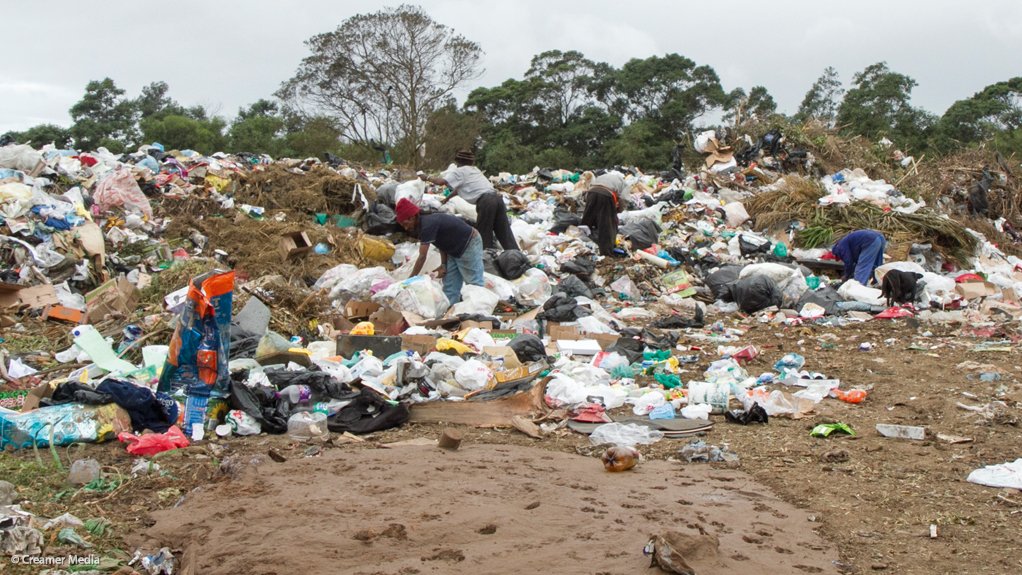Council for Scientific and Industrial Research (CSIR) waste experts have considered how informal waste pickers – individuals picking through bin bags at kerbside, recovering valuable recyclables – can be integrated into the South African waste and recycling economy, particularly when a mandatory Extended Producer Responsibility (EPR) scheme is implemented for certain waste streams.
“The intention of the planned implementation of EPR in South Africa is to move away from separate service and value chains towards a more integrated service-value chain that will result in increased recovery of recyclables,” CSIR lead researcher Linda Godfrey said in a statement on Tuesday.
The informal sector was active in recovering valuable post-consumer recyclables from South Africa’s service chain, having saved the country as much as R750-million in landfill airspace in 2014.
“This saving was at little to no cost to municipalities,” added Godfrey.
South Africa already had an EPR in place for waste tyres with the Department of Environmental Affairs having recently gazetted its intention to call for EPR in paper and packaging, waste electrical and electronic equipment, and lighting.
An EPR system sought to shift the financial and operational responsibility for the management of certain waste streams from municipalities to producers.
Godfrey stressed that the existing, but marginalised, informal sector had to be taken into consideration when implementing EPR schemes.
“Implementing EPR has the potential to compromise the livelihoods of an estimated 60 000 to 90 000 pickers, if they were ignored in the design of the EPR schemes,” she said.
She further noted that their exclusion could result in later conflict between the informal and formal sectors and possible sabotage of formal collection and sorting systems.
Recent research by the CSIR’s waste for development experts revealed that the formalisation of pickers into cooperatives was not currently creating sustainable jobs in South Africa, with an estimated cooperative failure rate of 91.8%.
“This means that an estimated nine out of every ten waste and recycling cooperatives started in South Africa, fail, for numerous reasons,” explained Godfrey.
In terms of integration models, four scenarios emerged which needed to be considered by government and product responsibility organisations, in moving forward.
The informal sector was used in its current format, as a largely marginalised and unregulated community, recovering value at little to no cost to the value chain.
The informal sector was also integrated into recycling programmes, with some level of control and monitoring, and with increased support from business and industry, while government and business drove to formalise the informal sector through the establishment of cooperatives and small and medium enterprises.
The formal waste and recycling sector drove a labour intensive process, based on an employment model of absorbing the informal sector and the discussions with stakeholders highlighted some of the issues facing the integration of the informal waste sector.
“These issues make the integration of the informal recycling sector a particularly sensitive one in South Africa. However, the value that the sector brings to South Africa’s waste and recycling economy cannot be underestimated,” concluded Godfrey.
Edited by: Chanel de Bruyn
Creamer Media Senior Deputy Editor Online
EMAIL THIS ARTICLE SAVE THIS ARTICLE
To subscribe email subscriptions@creamermedia.co.za or click here
To advertise email advertising@creamermedia.co.za or click here













